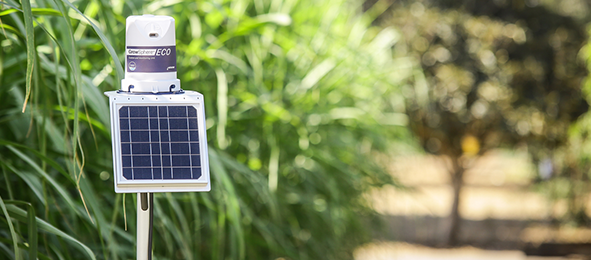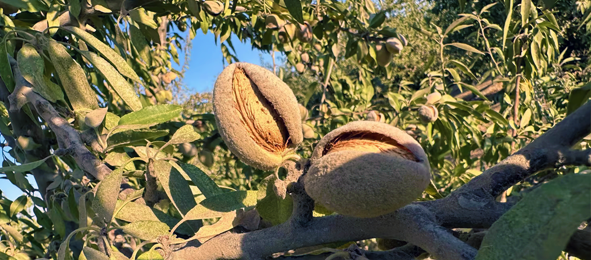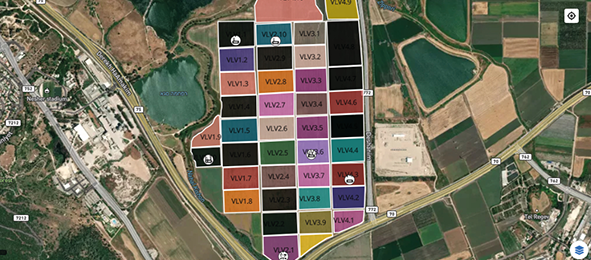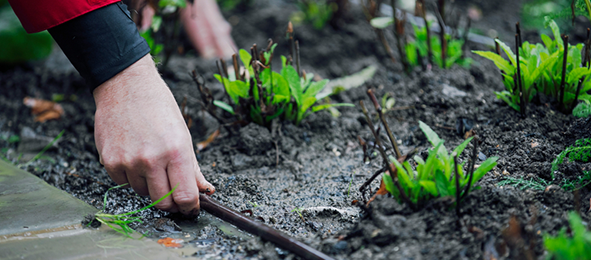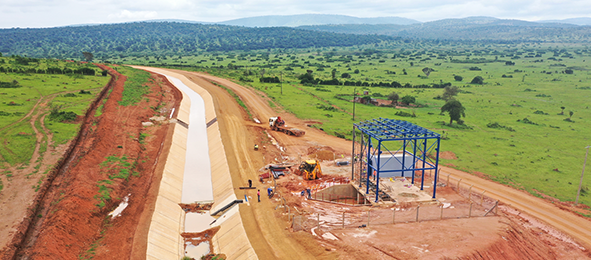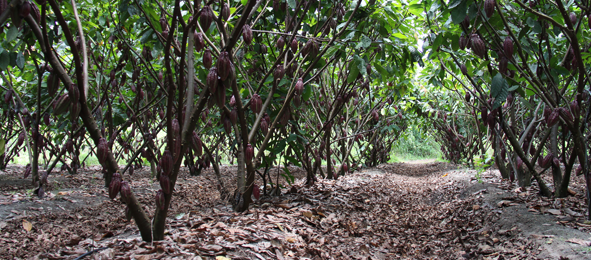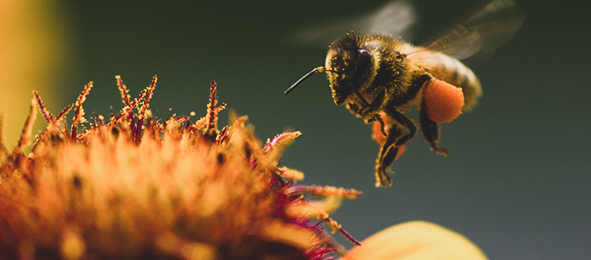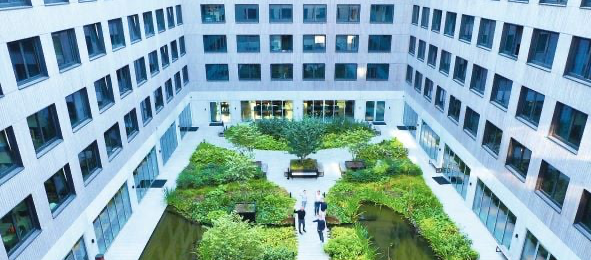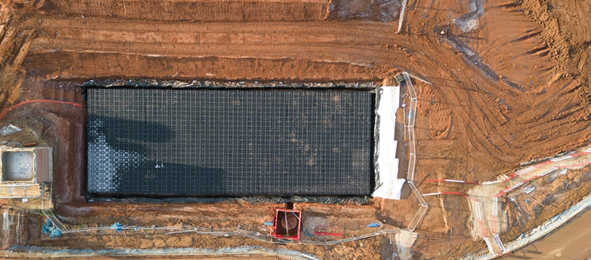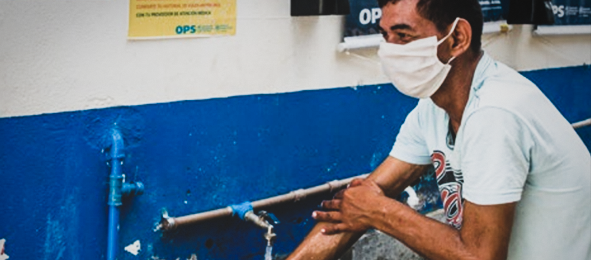Food & Water Security
By 2050, feeding a planet of 10 billion people will require an estimated 60% increase in agricultural production. The global food system faces multiple challenges: growing population, farmer livelihoods, and protecting natural resources while adapting to climate change. Likewise, water systems are under stress: from 1990 to 2050, the number of people living in water-stressed regions will have increased tenfold while valuable drinking water is lost in cities’ distribution networks.
Orbia delivers resource-efficient irrigation solutions to farmers for food security: increasing crop yields, minimizing water and fertilizer usage, reducing GHG emissions from farming, enabling local food production and extended growing seasons through greenhouse solutions. All of this improves the economic well-being and social progression of farmers.
We also provide solutions for smart, city-scale water management and access to drinking water, while working with partners to protect watersheds and promote water security.
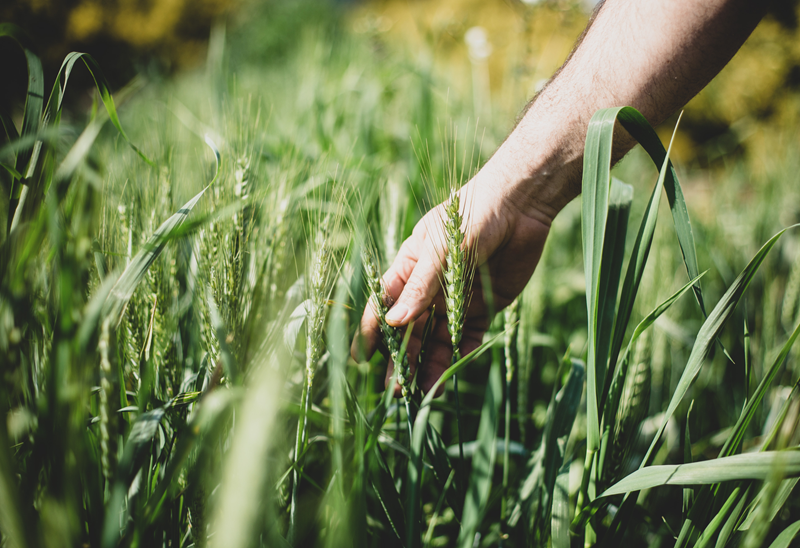
Our contributions to the SDGs:
Direct
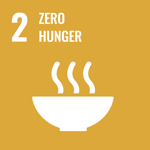 |
|
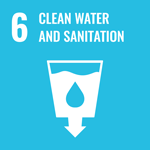 |
|
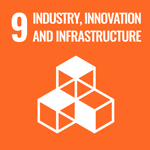 |
|
Indirect
 |
|
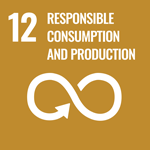 |
|
How Orbia is making a difference:
Sustainable Agriculture
Partnerships to promote drip irrigation
Orbia Precision Agriculture (Netafim) and Bayer | Crop Science have expanded their collaboration, introducing new digital farming solutions for fruit and vegetable growers. Bayer’s HortiView platform streamlines data collection and connects growers to agronomic services, enabling data-driven decisions. Orbia contributes tailored irrigation insights within HortiView to provide precise, field-based recommendations. The collaboration also aims to integrate HortiView with GrowSphere™️, empowering growers to optimize crop production, resource use and minimize environmental impact.
Matching Corporations and Farmers to Opportunities
Orbia Precision Agriculture’s Corporate Partnership Program is helping farmers access modern irrigation systems through partnerships with companies like Keurig Dr Pepper (KDP) and Google. KDP supported drip irrigation installation in California’s Sacramento and San Joaquin Valleys, while Google helped transition a Dos Palos farm to drip-irrigated almonds. With assessments from LimnoTech, these efforts enhance water conservation, improve farm efficiency, and benefit local communities.
All-in-One Irrigation Operating System
In 2024, Orbia's Precision Agriculture business (Netafim) launched GrowSphere™️, an advanced system for precision irrigation and fertigation. This solution automates operations, improving crop yields and efficiency for thousands of farmers worldwide. By integrating hydraulic, operational, and agronomic functions, GrowSphere reduces manual tasks and ensures reliable automation. Developed with leading industry partners, it leverages over 50 years of agronomic expertise using Internet of Things (IoT) and data analytics to help farmers boost productivity and address environmental challenges.
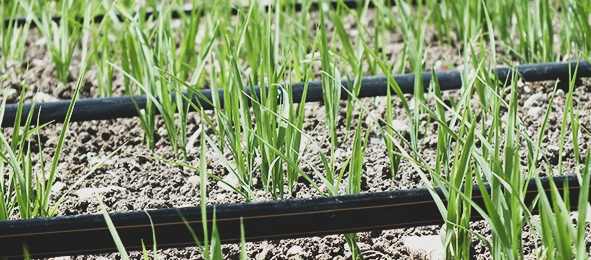
Sustainable rice at scale
Netafim’s drip irrigation system is demonstrating an effective solution to inefficient flood irrigation. When compared to conventional rice paddy farming, Netafim’s drip irrigation technology out-produces paddy cultivation, using 70% less water, 30% less fertilizer, and 36% less energy while reducing methane emissions to nearly zero and arsenic uptake by up to 90%. This technology has now been installed in 2,000 hectares of rice fields globally, including Brazil, Turkey, Italy, India and Ukraine. As part of our efforts to increase the adoption of sustainable practices, Netafim revealed the first carbon credit program for rice growers at COP27, providing an attractive alternative to financially assist farmers in adopting sustainable or regenerative agricultural practices.
Precision irrigation to support carbon sequestering
Netafim has implemented its drip irrigation system in a plantation growing carbon-storing trees in, Suffolk, England, to increase yield and carbon-storing capabilities. In the first-of-its-kind project in the UK initiated by Carbon Plantations, a variety of Paulownia trees are being planted across about 330 acres of land to produce fast-growing hardwood and absorb carbon dioxide.
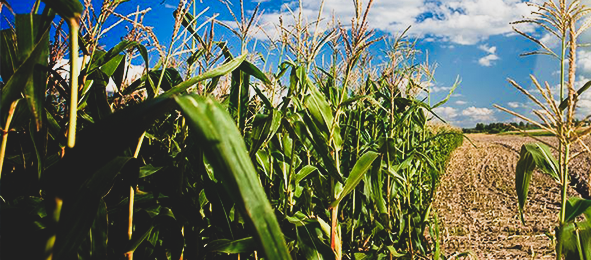
Circular solutions for dairy farms
Netafim’s subsurface drip irrigation (SDI) system recycles organic waste generated by dairy cows and optimizes levels of fresh water to fertilize and irrigate feed crops while eliminating the need for chemical fertilizers. Environmental benefits include healthier soil and root environment, water, nutrient and energy conservation, and GHG emissions reduction (between 70% and 90% compared to traditional methods).
Pioneering agribusiness models in Rwanda
Orbia’s Precision Agriculture business in collaboration with the Rwandan Government, leads the groundbreaking Gabiro Agribusiness Hub project of 80 hectares. This venture provides ready-to-farm land with full access to water and energy networks, this project will enable year-round production of high-quality agricultural produce eliminating dependency on rainfall and creating up to 2,500 jobs.
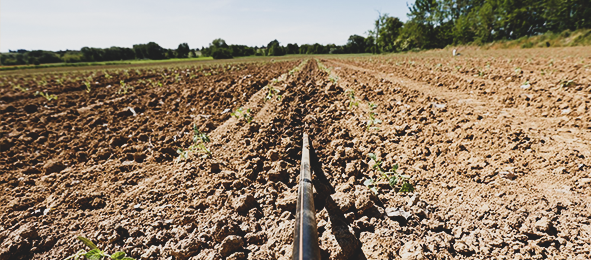
Streamline X ReGen™
First introduced in Europe, this unique dripline uses the highest quality recycled material, while increasingly eliminating the need for packaging. Streamline X ReGen maintains the same high level of product quality and performance while using a method to leverage recycled materials. In 2022, this full-scale circularity program expanded into Mexico with the opening of the country's largest agricultural plastic recycling facility. On the journey to full circularity, Netafim currently operates a variety of recycling programs across its plant in Fresno, California, as well as sites in Australia, Israel, Peru, Chile, and Spain, among others.
Solutions for smallholder farmers
In 2023, Netafim was selected for funding by the Inter-American Development Bank to establish the first productive ecosystem for growing sustainable cocoa in Peru. This initiative aims to double the productivity and enhance the quality of the product for 200 farmers across the Peruvian Amazon, increasing the capacity of family producers and mitigating deforestation and drought risks.
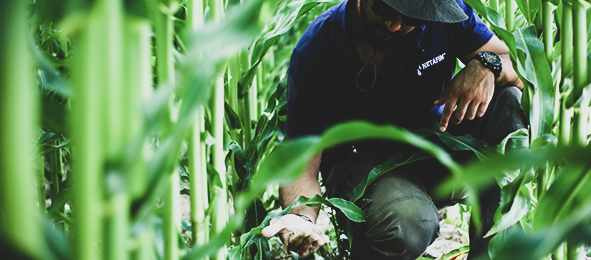
Producing more corn with less
One of the world’s most productive grains, corn is the third-largest plant-based food source in the world, with 1.2 billion metric tons produced in the last year. The most important crop in the U.S., corn is also cultivated in China, South America, India, Ukraine and across Europe, grown extensively as food for both humans and livestock, as a biofuel, and as a crude material for industrial purposes. The results of Netafim’s corn LCA, conducted by EcoChain during 2020, show that drip irrigation is a much more advanced offering than flood or sprinkler irrigation in terms of minimizing negative environmental impact and optimizing yield.
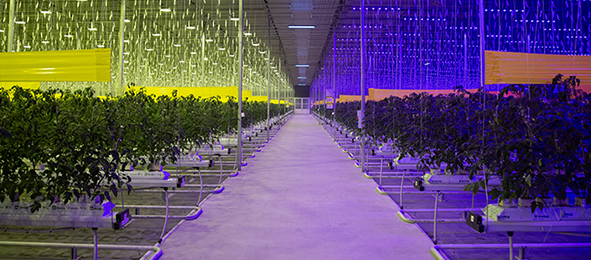
Local food cultivation with greenhouses
In early 2021, Netafim acquired Gakon Horticultural Projects, a leading Dutch turnkey greenhouse solutions provider. With Gakon’s specialist expertise in all aspects of greenhouse project execution and Netafim’s established leadership in advanced irrigation technologies, local food cultivation can now become a reality around the world.
In 2023, through this acquisition, we partnered with Vermillion Growers to build the first ever large-scale vegetable greenhouse in Manitoba, Canada. We will begin growing tomatoes year-round across 10 acres, with plans to expand the production area and grow additional crops.
Keeping beehives healthy
To prevent mite infestations in beehives without harming the bees or contaminating the honey, Orbia Polymer Solutions (Alphagary) partnered with a customer to develop a safer, more effective solution. Using our SUPERKLEEN™ PVC compounds, which include bio-based content and FDA-approved ingredients, the customer extruded strips that deliver mite prevention directly. This solution avoids the use of fogging or vaporized chemicals, offering a cleaner, safer alternative.
Urban Climate Resilience
Seeing Water Differently
At Orbia's Building & Infrastructure (Wavin) business, we’re turning global water challenges into opportunities for sustainability. In 2024, we focused on solutions that enhance urban climate resilience, earning recognition for our See Water Differently initiative. Named Best ESG Campaign at the 2024 ESG & Sustainability Awards, we’re proud to be driving smarter, more sustainable solutions for cities and communities.
Rainwater to foster nature in cities
With the acquisition of Metropolder in 2022, Wavin added additional expertise and solutions in the field of blue-green urban nature-based solutions. 2023 saw the introduction of the new PolderRoof, a smart water retention blue-green roof solution that increases the amount of rainwater captured on the roof to sustain the greenery that cools down our cities – increasing biodiversity, reducing heat stress and making the places we live healthier and happier.
Recycled water attenuation and infiltration solutions
Wavin’s AquaCell can be used in various standalone applications, and in combination with our PolderRoof, to successfully manage excessive rainfall within an underground, modular structure, and then use it for attenuation or infiltration. AquaCell New Generation (NG) has superior attenuation and infiltration capabilities that play a vital role in achieving water neutrality. Its use of 100% recycled materials, swift installation process, and space-saving design demonstrate Wavin's commitment to sustainable practices.
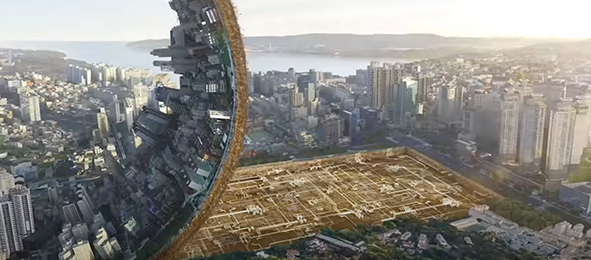
Smart water network management
High volumes of valuable drinking water are lost in cities’ distribution networks due to broken pipes, leaking fittings, aging infrastructure, etc. Wavin’s Water Network Management is an intelligent diagnostic service for water management. It helps utilities and water companies in Latin America monitor and reduce water losses in distribution networks through advanced technology that includes machine learning and a 24/7 monitoring and analysis center.
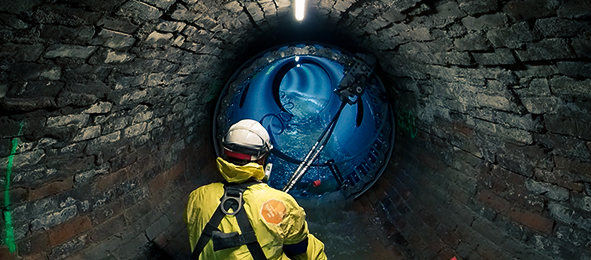
No-dig water infrastructure for cities
The trenchless (ZinZanja) rehabilitation solutions from Wavin using compact pipe and eight other no-dig technologies are now coming into widespread use for urban water installations and aging water infrastructure upgrades alike, offering dramatic gains in direct regional costs (with reductions in construction costs of up to 75%), time-to-completion, resource efficiency, maintenance needs and resiliency. To date, Wavin has now installed over 1.5 million meters of compact pipe systems worldwide to fix old buildings, repair leaking pipes, and reliably carry water to citizens worldwide for up to 80 years, unimpeded.
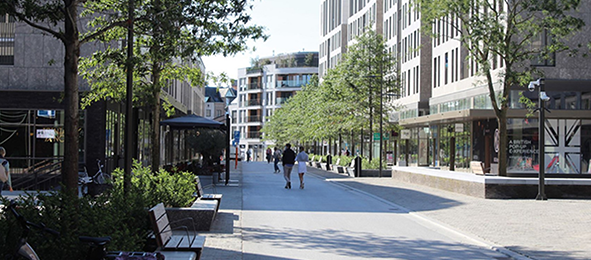
Greening cities while replenishing groundwater
Wavin’s AquaCell is an effective solution for excessive rainfall made from 100% recycled material. It reduces flood risk and enables cost-effective management of the water environment. In addition, Q-bic Plus, geo-cellular modular plastic units, also part of our stormwater management solutions range can be applied as TreeTanks to support tree growth in urban environments. While greening up and cooling cityscapes, TreeTanks prevent the ground from compacting, compensating for groundwater depletion and reducing flooding.
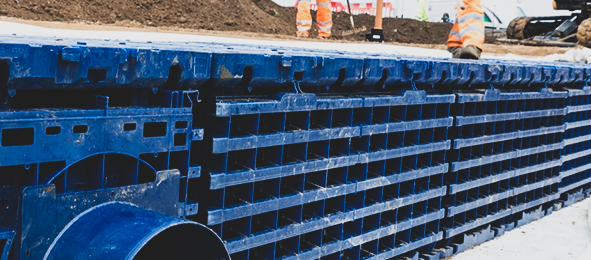
A smarter drainage system
Through a new partnership with StormHarvester, a leader in automated monitoring and control of drainage infrastructure, Wavin is now offering cities the Wavin StormHarvester system: an all-in-one-tank rainwater reuse and flood drainage system run on smart weather forecasting technology.
Access to Water and Sanitation
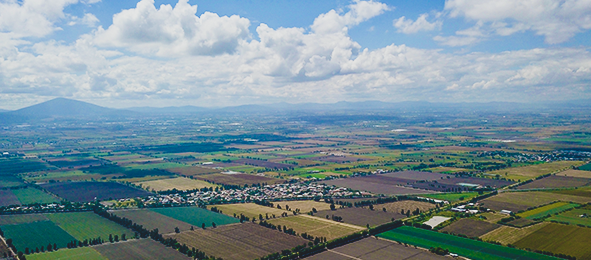
Water Funds to promote water security
Orbia’s business groups address water scarcity by supporting the Latin American Water Funds Partnership in Mexico, Brazil, Peru and Colombia. Water Funds design and promote financial and governance mechanisms, engaging public, private, and civil society stakeholders in order to contribute to water security through solutions grounded on nature-based infrastructure and the sustainable management of watersheds.
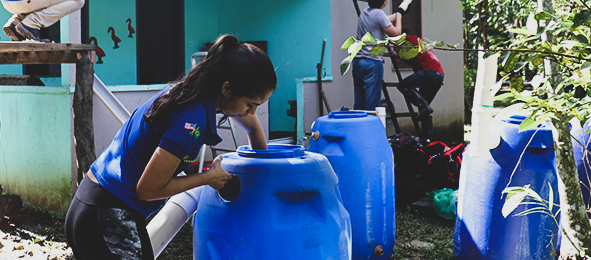
Scalable rainwater harvesting systems
To provide water to rural communities across Central America, Wavin has installed more than 3,000 systems over the past four years, improving water supply to more than 20,000 people. In 2021, more than 200 rainwater harvesting systems were installed in Guatemala, Honduras and El Salvador.
LEARN MORE
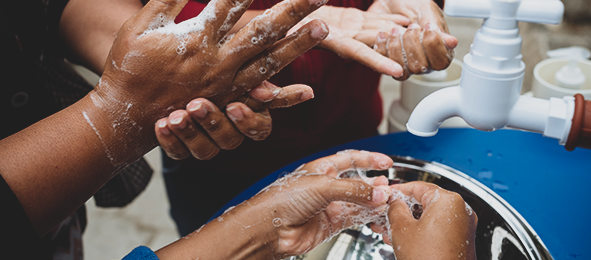
Making handwashing accessible
Orbia supported UNICEF’s expanded efforts to keep children and their families safe from infection as part of their global response to the COVID-19 pandemic. Our donation of essential supplies, including water tanks and pipes manufactured by Orbia, helped address the urgent needs of nearly 300,000 people in schools, health centers, childcare facilities and other public venues. This was achieved through the installation of handwashing stations across Brazil, Colombia, Ecuador, Guatemala, India, Mexico, Peru and South Africa.
Improving sanitation in Latin America
Wavin has a long history of supporting WASH programs in Latin America. One example is a project focused on communities neighboring our facilities in Colombia, in alliance with the NGO Techo Colombia. This initiative enabled the construction of domestic hydrosanitary infrastructure for families in vulnerable conditions, increasing access to basic sanitation and hygiene services for those communities, and contributing to an improved quality of life. Wavin supports WASH programs with diverse partners in Colombia, Ecuador, Peru, Brazil, Mexico and Central America.
